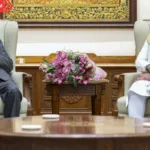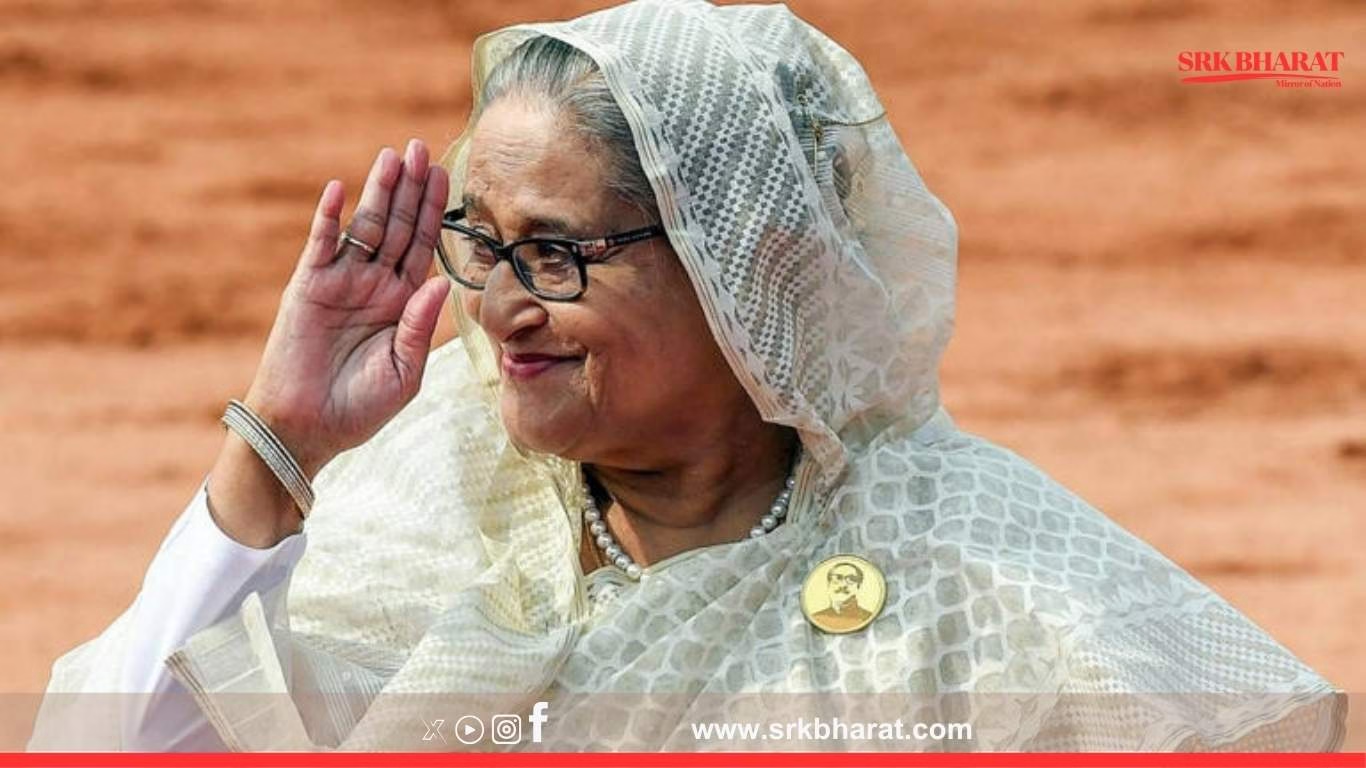In a significant administrative reform aimed at gender inclusivity and dignity in public offices, the Bangladesh government has announced the removal of the mandatory ‘sir’ salutation for women officials. This decision reverses a long-standing protocol from Prime Minister Sheikh Hasina’s earlier tenure that institutionalised addressing both male and female officers as ‘sir’, sparking decades of discomfort and criticism among women in civil services.
What Was The ‘Sir’ Protocol?
For decades, Bangladesh’s administrative machinery enforced a uniform protocol where:
- All government officers, regardless of gender, were addressed as ‘sir’ by subordinates and public petitioners.
- The directive originated in an attempt to ensure gender neutrality by not creating a separate ‘madam’ protocol, ironically resulting in gender erasure for women officers.
The Decision To Scrap The Rule
On Tuesday, the Ministry of Public Administration issued a notification stating:
“Addressing women officers as ‘sir’ is not appropriate. From now, women officials will be addressed with respectful gender-appropriate titles or simply by their designation.”
The ministry further stated that the government is reviewing several “odd, outdated, or discriminatory” protocols that do not align with constitutional values of gender equality and dignity.
Why Was The Rule Controversial?
1. Gender Identity Erasure
Women officers and activists have long argued that the ‘sir’ protocol erased their gender identity, forcing them into a male-centric administrative culture instead of treating them with dignity and equal status.
2. Cultural Mismatch
In Bangladeshi cultural context, addressing women as ‘sir’ was seen as awkward, culturally alien, and insensitive, especially in local language official communications.
3. Contradicted International Gender Norms
The rule was criticised for violating global public administration standards on inclusive language, especially after Bangladesh committed to the UN SDG Goal 5 on Gender Equality.
Voices Of Women Officials
Sabina Yasmin, Deputy Secretary, shared:
“For years, subordinates calling me ‘sir’ felt forced and culturally disconnected. This change is about dignity, not titles.”
Farida Parveen, Upazila Nirbahi Officer, noted:
“Female officers were often ridiculed for objecting to ‘sir’. Now the government’s step validates our lived experiences.”
Current Gender Representation In Bangladesh Civil Services
| Position | % Women Representation |
|---|---|
| Entry-level BCS Administration Cadre | ~37% |
| Mid-level (Deputy Secretary, Joint Secretary) | ~19% |
| Top Bureaucracy (Secretary, Senior Secretary) | ~9% |
(Data based on Public Administration Ministry’s 2024 assessment)
Policy Reform In Line With Gender Inclusion Agenda
The scrapping of the ‘sir’ rule is part of a broader gender audit initiated in 2023 to:
- Remove protocols undermining women’s dignity.
- Promote gender-sensitive workplaces.
- Ensure language and practices align with Bangladesh’s Gender Equality Policy 2011.
Global Best Practices On Titles
- India: Female IAS and IPS officers are addressed as ‘Madam’ or ‘Ma’am’.
- UK Civil Services: Use of ‘Sir’ or ‘Madam’ as appropriate, but mostly designations are used to avoid gendered hierarchy.
- Australia: No mandatory titles; designations and first names are used in modern public service culture.
- Pakistan: Similar to Bangladesh, historically used ‘sir’ but has gradually shifted to gender-appropriate titles post 2015 civil service reforms.
Criticism And Counter Views
While welcomed widely, some conservative bureaucratic quarters criticised the decision as “semantic activism”, arguing:
- It may create confusion in uniform administrative addressing.
- A neutral single term like ‘sir’ maintained hierarchical clarity.
However, gender experts dismiss this argument, stating that respect can coexist with gender accuracy and dignity.
Bangladesh Government’s Broader Protocol Review
The government has formed a committee to examine other “odd or outdated administrative protocols” including:
- Uniform codes for women officers in field postings.
- Seating arrangements in formal events that often place female officers away from decision-making tables.
- Verbal address etiquette in local governance meetings.
Reactions From Civil Society And Women’s Rights Groups
Naripokkho, a leading feminist organisation, issued a statement:
“This is a long-overdue corrective measure. Titles shape institutional culture and removing male-centric terminology is crucial for equality.”
Bangladesh Women Chamber of Commerce and Industry (BWCCI) added:
“Language influences perception. Recognising women officers’ identities strengthens gender mainstreaming goals.”
Implementation Challenges Ahead
Despite the announcement, field officers point to potential challenges such as:
- Retraining subordinates on appropriate address norms, especially in rural offices.
- Updating administrative manuals, official communication templates, and training modules to reflect the new directive.
- Preventing backlash or ridicule from male-dominated office cultures resistant to change.
The Way Forward
Experts suggest that mere protocol revisions are insufficient without:
- Awareness campaigns sensitising all public service stakeholders on gender-inclusive communication.
- Training programmes for administrative staff and local government officials.
- Monitoring mechanisms to ensure compliance, especially in hierarchical departments like police, revenue, and public works.
Conclusion
The Bangladesh government’s decision to scrap the ‘sir’ title for women officials marks a progressive shift towards gender inclusivity, dignity, and cultural appropriateness in public administration. While symbolic, it signifies an evolving administrative ethos that seeks to uphold constitutional gender equality. The upcoming reviews of other outdated protocols will test the government’s commitment to creating a truly inclusive and dignified bureaucratic ecosystem.
Disclaimer: This news content is based on official notifications, civil service data, and expert opinions. It is intended for informational purposes only and does not constitute legal advice, administrative guidelines, or official government communication. Readers are advised to refer to the Ministry of Public Administration’s circulars for formal directives and implementation details.











